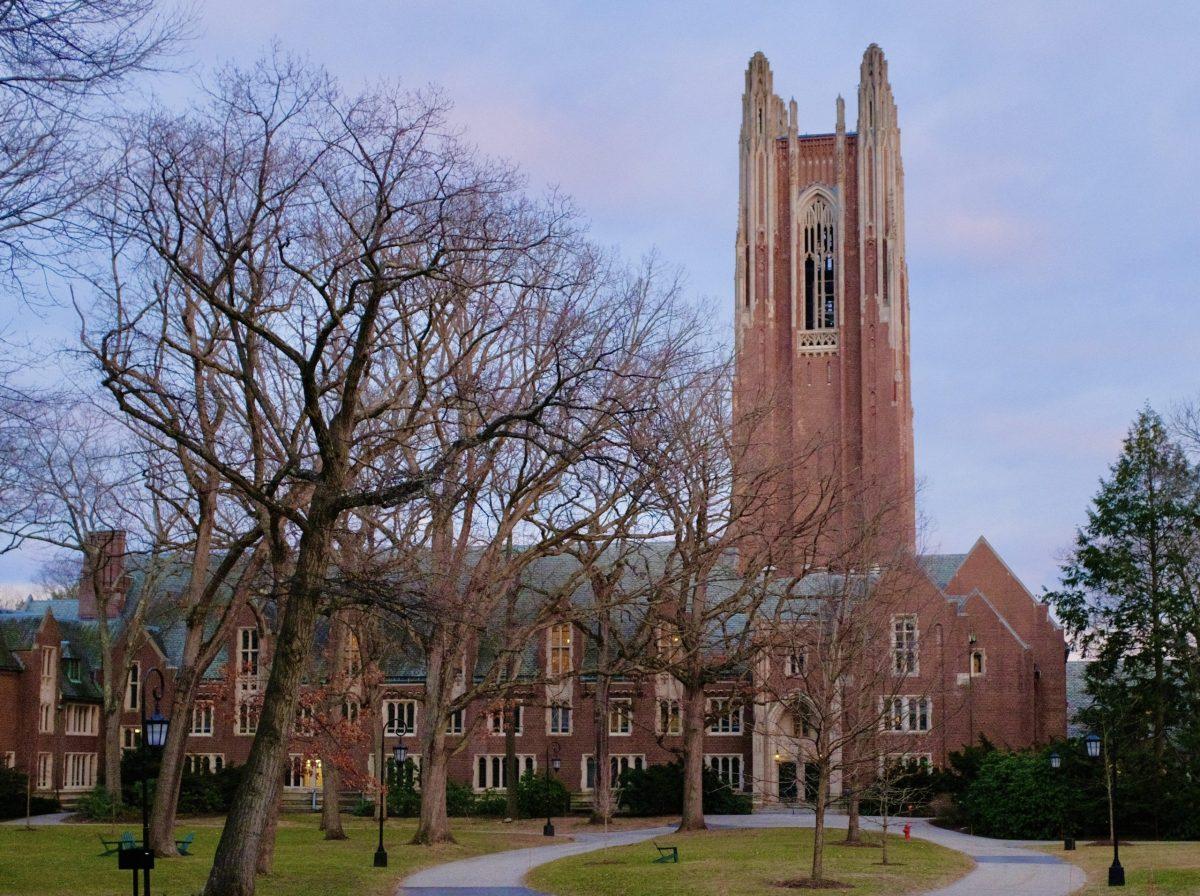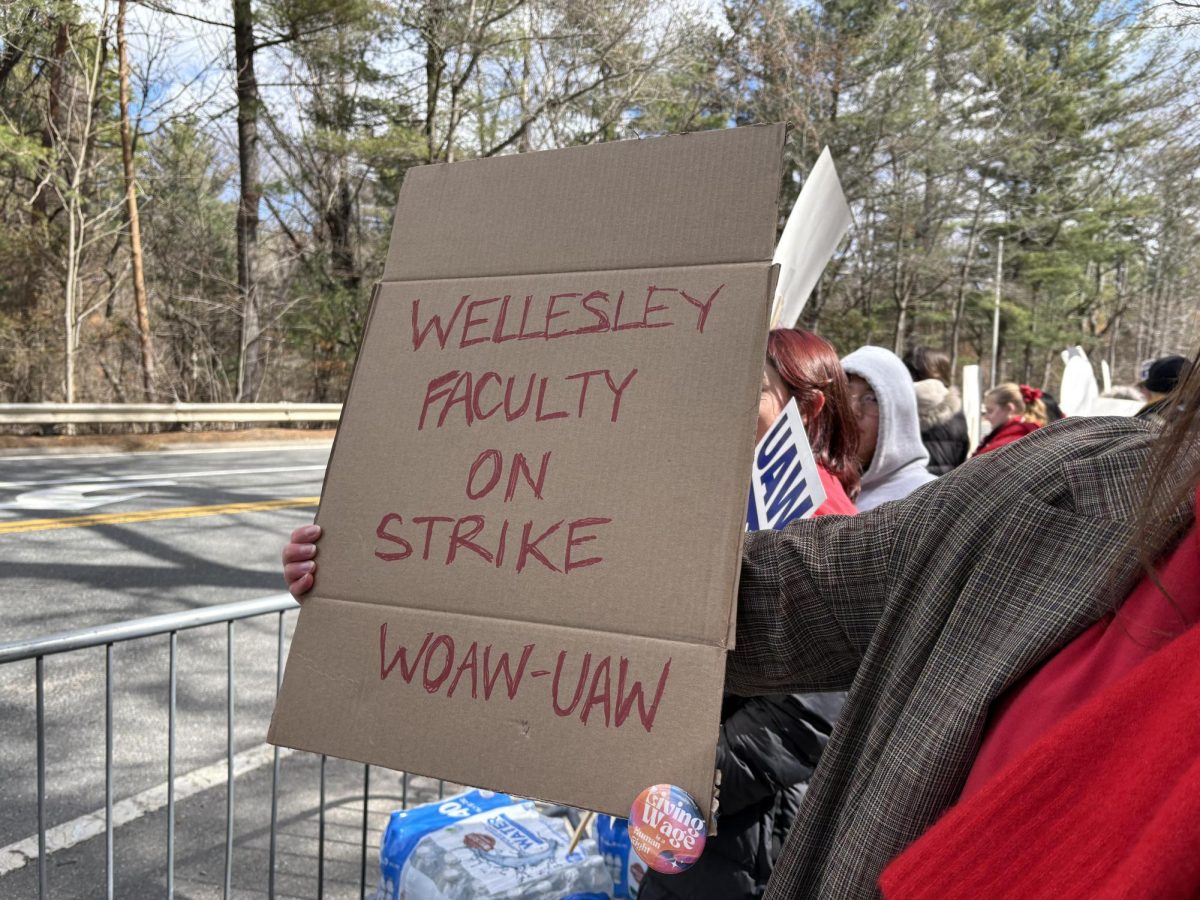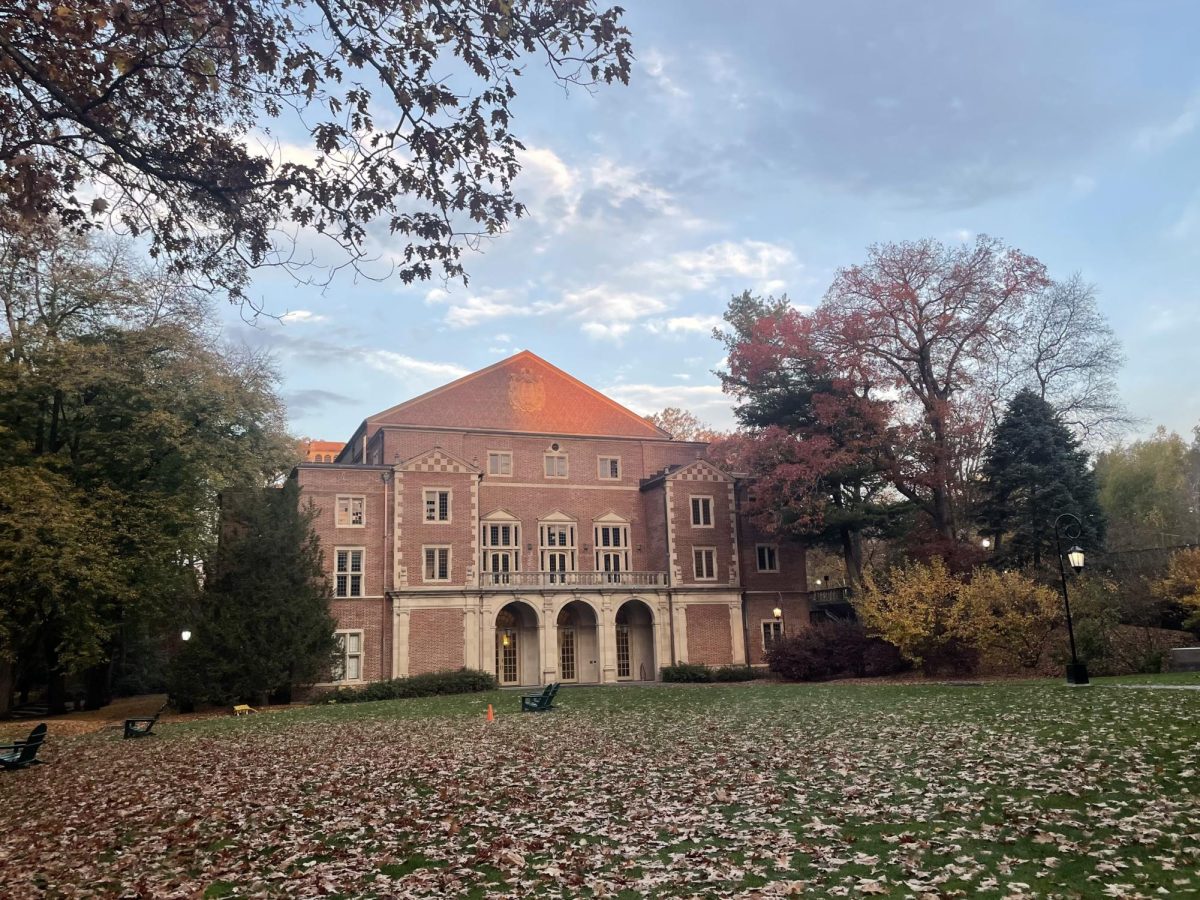The views expressed in the article do not represent the views of the author or The Wellesley News.
As the past year of the war in Gaza has thrust college campuses into ideological divisions, Wellesley is not alone in joining fellow higher education institutions to educate its students on diverse and pluralistic perspectives.
The new Pluralism Initiative, founded to bridge gaps on a diverse campus by creating a safe space for students to ask the hardest questions, held its first event, “What’s in a word: Zionism?” on Sept. 19.
“Diversity should be the means to pluralism. It should be the means to which we end up with a space [where] we all can be heard, participate openly, and give each other the benefit of the doubt — despite our differences,” said Professor Liza Oliver, founder and director of the Pluralism Initiative in an interview with the News.
The first installment brought together four experts — Derek Penslar, Omar Dajani, Dahlia Scheindlin and Ezzedine Fishere — and nearly 80 students to discuss the Israel-Palestine conflict on Sept. 19 and 20. The event aims to foster a safe space for intimate dialogue with students and faculty to learn about the conflict while modeling respectful discourse.
The word “Zionism” has become a keyword that college campuses have been grappling with the past year, which is why Oliver chose to kickstart the Initiative with it.
“For an initiative rooted in trying to have these hard conversations, it seemed irresponsible of me to not address [Zionism] right off the bat,” said Oliver.
The modern Zionism movement dates back to the 1800s. Different people interpret the word itself, the history it represents and the current struggle in the Middle East in different ways.
Although the College administration was not involved in the creation of the initiative, President Johnson lauded the initiative for providing the community who demanded “more opportunities to delve into the issues in that region,” in an email sent on Sept. 6.
Academics dissect historical conflicts
During Thursday’s panel, discussion began with moderator Stacie Goddard, Professor of Political Science. Goddard posed a question to all the experts about their perspectives on the various definitions of Zionism.
Fischere, professor of Middle Eastern studies at Dartmouth, discussed his personal experience grappling with Zionism growing up in Egypt during a period of active conflict between Egypt and Israel. Though he initially understood Zionism with aggressive connotations, he later recognised that multiple definitions of Zionism existed. This perspective, he said, is key to envisioning any potential solution to the conflict.
Panelist Derek Penslar, professor of Jewish History at Harvard, said he saw “one outgrowth of Zionism,” in a separate interview with the News.
“Zionism is being widely used to justify a hawkish Israeli government that is extremely aggressive towards the Palestinians,” said Penslar. “It’s important for people to understand that one can identify as a Zionist without endorsing this current government and what it’s doing in Gaza.”
At the panel, the group continued to discuss “catastrophic Zionism”—a term used to describe the fear for the survival of Jews outside of Israel and for the state of Israel itself— being the Zionism of the present Israeli government and the relationship between Hamas and Palestinian citizens.
Pertaining to the election of Hamas in 2006, Dajani, professor of law at the University of the Pacific, first spoke about how the most important decisions made about the Gaza Strip are made by the government in Jerusalem. He argues that it is inaccurate to say that Palestinians brought their current situation on themselves as they previously elected Hamas to show their disapproval of the Jerusalem government’s decisions.
In a separate seminar after the panel, the experts discussed what they believe is the best solution to the conflict. Scheindlin, a fellow at global policy research organization Century International, and Fishere agreed that the best solution to the conflict is one where both populations can coexist, although there was disagreement as to the best means to end the conflict.
Notably, the group discussed how to best approach conversations and debate around the Israel-Palestine conflict, which has sparked mass protests across U.S. campuses since October of last year.
“We need to understand the conflict. We must avoid replicating it. At our campuses in America, we are replicating the conflict – the same anger, the same intolerance, the same hatred – that accomplishes nothing,” Penslar said in an interview.
Further conversations
Students can become more educated on the subject by consuming credible news from both sides, according to Penslar. He suggests that those who support Israel should read “Al Arabiya”, an English-language Arabic news source and “The Times of Israel” for those in support of Palestine.
The Pluralism Initiative has also created a list of readings as a starting point for individuals of any political belief to begin learning about the conflict, including Alan Dowty’s Israel/Palestine, 5th edition, Benny Morris’s The Birth of the Palestinian Refugee Problem Revisited, Derek Penslar’s Zionism: An Emotional State and Nathan Thrall’s A Day in the Life of Abed Salama: Anatomy of a Jerusalem Tragedy.”
This was the first Pluralism Initiative event, with many similar events to come throughout the year. Oliver, alongside a group of faculty members across five departments, will create and lead the programming together. The Institute will also host two events: Class, Status, and Luxury Beliefs on Oct. 22 and a roundtable on UFOs on Nov. 25.
Contact the editors responsible for this story: Valida Pau, Sazma Sarwar, Galeta Sandercock
Updated to reflect “the war in Gaza” in the first paragraph.




